Our ‘principles of thinking’ challenge, initially taken up by prof. Edward Nęcka in his Decalogue, has also triggered Gys Godderis, another Fellow at the School of Thinking, to contribute his take on the matter. Reading prof. Edward Nęcka’s Décalogue of Thinking and Jouri Meji great reaction on it by describing A Triptych of Colors there was no other way to respond to this by adding a new title to the sequence.
La Double Vie de Réflections
BY Gys Godderis, FELLOW SOT, 2021
As thinking often means taking the bigger picture into consideration and understanding all of its consequences, this means we cannot simply write down our future and previous actions on a post-it. It means truly understanding what you did earlier, when you did this, why you did this, what you’ve experienced, what you’ve learned and how you learned it and what the consequences are of this process for future actions. It includes digging into your inner feelings, reactions and emotions. It requires a conscious consideration and even analysis of beliefs and actions for the purpose of exploring and re-exploring.
Intracognitive thought roving, the adaptation of extracognitive input and being able to connect this to and from an embodied mindset will create a collection of methods that enables to adequately and relevantly produce insights into how we can move forward into this future, sustainable, influencing our environment and in relation to evolution of humanity and its worldviews.
But this duality is more than just an accumulation of facts and figures; it’s a way to tackle whatever consumes your mind at the moment in such a way that you come to the best possible conclusion.
And there is more. While certain information is obtained and is channeled through our moral arbitrator and our critical arbitrator, this process of assessing the situation or phenomena seems to be an initial part of our thinking process. In this momentum already lays the first seed of how we will respond, from a thinking point of view. The available information (or lack of information) can be / will be subject to change, be it in person or another agent, in the form of some thought roving in the library of previously obtained knowledge or in the form of newly discovered external variables.
And this process seems to act like a somewhat blurry mirror as we are taking into account the importance and relevance of one’s own mind but also should recognize that this very own mind has a task in relation to ‘the other’. This reflecting seems to be a critical component in our exploration process and often seems to result in a very individualistic combination of self-awareness, self-improvement and empowerment. But I would like to take up the cudgels for a counter-reflection, a way of thinking that results in mutual-awareness, mutual-improvement and mutual empowerment, not only in our actions, but starting from an early stage in our efforts to understand the phenomena, our own ontogenesis and our worldview, taking “the other” into consideration. It might enlighten our mutual struggle with the complexity of everyday life :).


